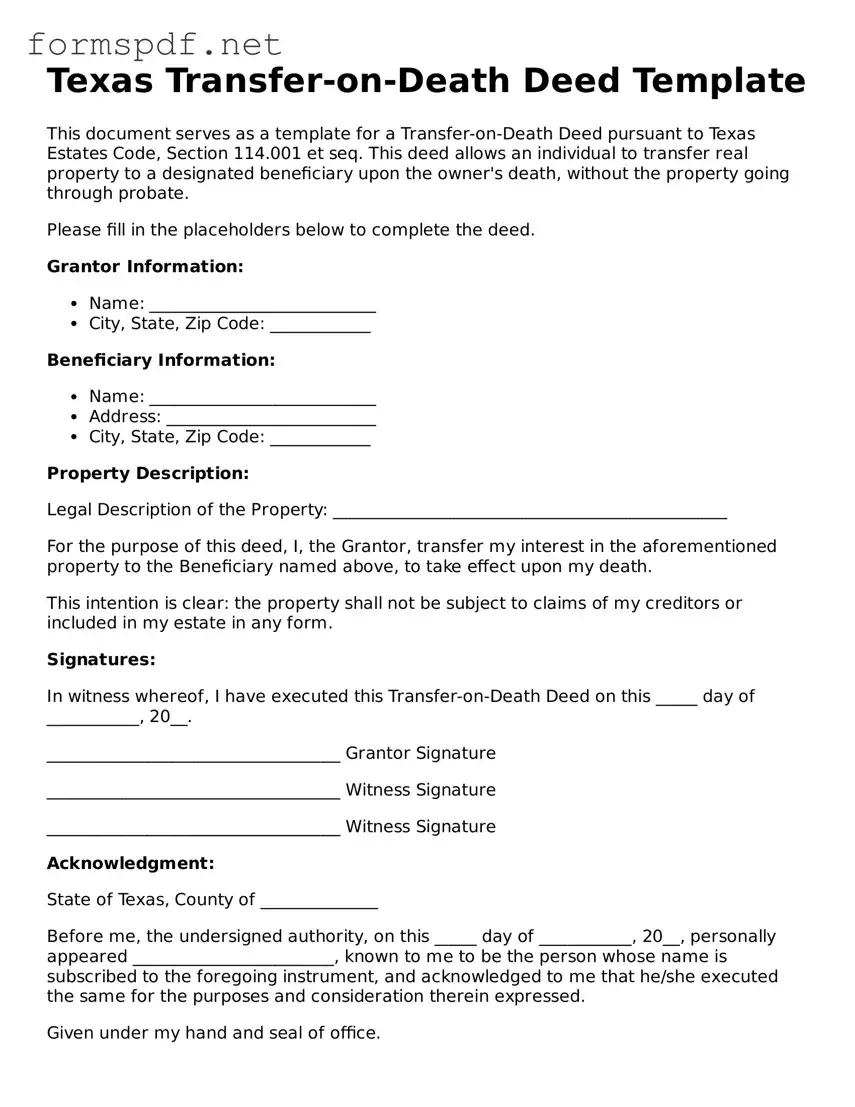Free Transfer-on-Death Deed Form for Texas
The Texas Transfer-on-Death Deed form allows property owners to transfer their real estate to beneficiaries upon their death without the need for probate. This straightforward legal tool simplifies the process of passing on property, ensuring that your loved ones receive their inheritance smoothly and efficiently. Ready to secure your legacy? Fill out the form by clicking the button below.
Launch Editor Now

Free Transfer-on-Death Deed Form for Texas
Launch Editor Now

Launch Editor Now
or
⇓ Transfer-on-Death Deed PDF
Don’t leave without finishing the form
Finish your Transfer-on-Death Deed online and download the final version.